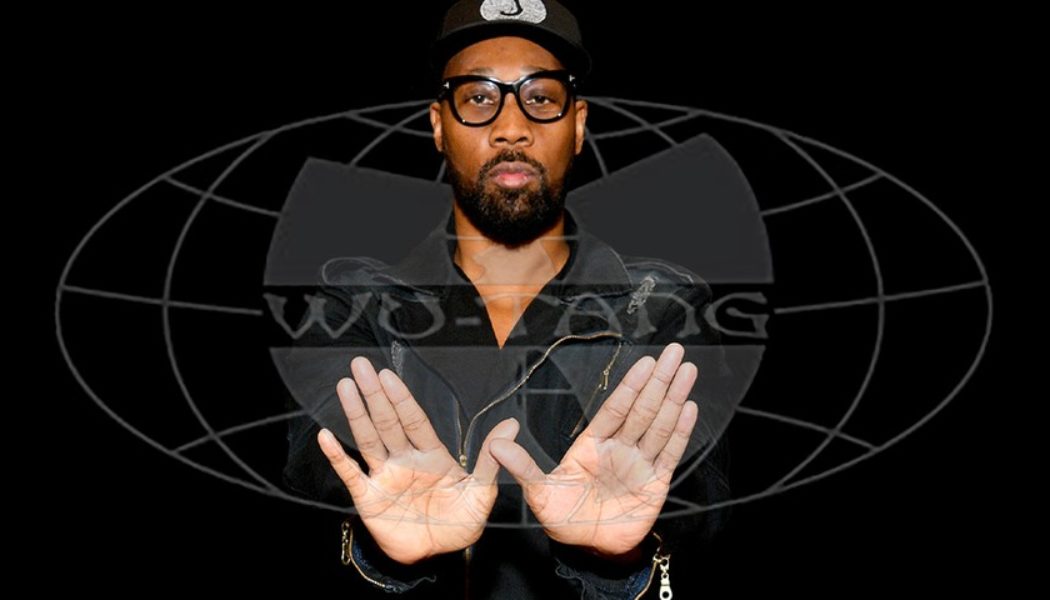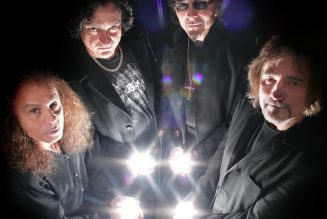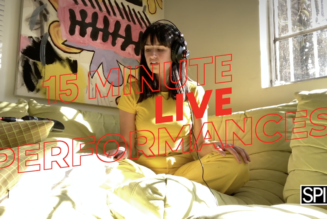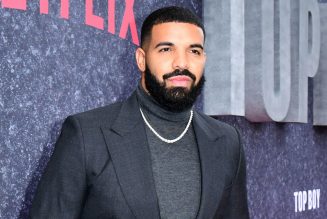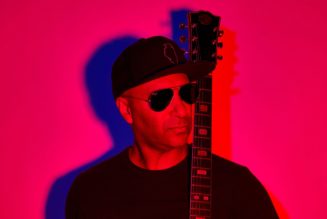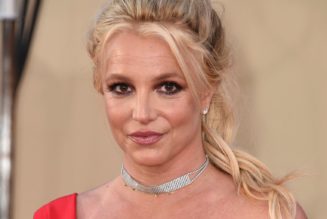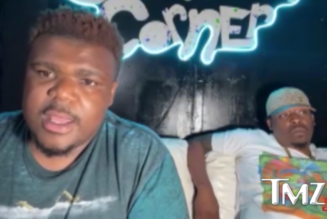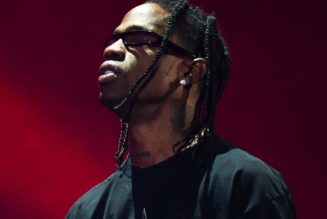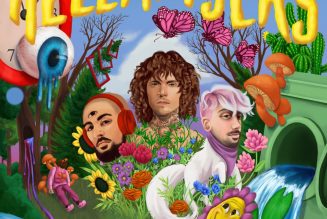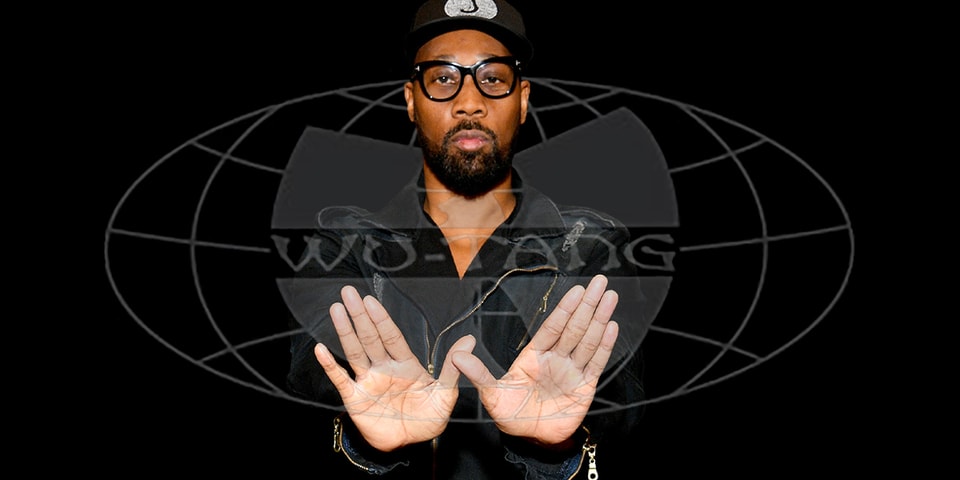
RZA is a man of many talents. He’s an accomplished musician, the de facto leader of one of the most influential hip-hop groups in history, a SAG-nominated actor, decorated filmmaker and New York Times Bestselling author, but one of the toughest thing he’s ever had to do is tell the story of the Wu-Tang Clan in the Hulu series Wu-Tang: An American Saga.
Speaking to HYPEBEAST just shortly after An American Saga first debuted, RZA explained that the hardest part of working on the show is that “it’s a very tedious job.” Two years and a second season later, he and his team were forced to face their biggest challenge yet: a pandemic. In addition to the trouble that came hand-in-hand with the extended period of time between seasons, the pandemic caused production and season premiere delays, on-set restrictions and the forced recasting of an important character. There was also the matter of introducing additional cast members to the mix, which can present its own set of trials behind-the-scenes and on-camera.
But as the story of the Wu progressed, so did the bond of the young men in An American Saga. “Let me share one thing with you that was so funny,” RZA tells us one afternoon over video, diving into a story that took place at a makeshift and restricted wrap party for season two. “I basically invite the cast and some people from the crew and a few guests, we do this dinner-slash-party, and I’m kind of hosting it on the mic. Sway [Calloway] — he knows Wu-Tang, he knows us — is sitting there at a front table with some other artists, and ‘Protect Ya Neck’ is played by the DJ. Would you believe 90% of the cast members got up from their table, came to the stage and performed in front of us and ripped it,” he recalls, evidently amused at the memory. “Sway had to put it on his phone like ‘Yo, this is like the new Wu.’ Nobody told them to do it, they didn’t get paid to do it. They just went up there and ripped it, and that’s the kind of energy that this set built between these young men.”
We sat down with RZA once again to discuss the process behind the new season of Wu-Tang: An American Saga, recreating and translating the atmosphere of one of the group’s most culturally important moments and how the Wu-Tang Clan can serve as a blueprint for young minds.
[embedded content]
HYPEBEAST: You’re known to be an individual that’s always busy working on something, but the pandemic kind of slowed down all of our journeys. How did you keep up with your new routine?
RZA: I talked to a lot of my peers. We’re always on the run. We are never home and it’s just work, work, work. But COVID actually forced us to sit home. And as far as my music is concerned, it increased my music capabilities and my music output. One thing I’m really proud of, and I’ve been hearing people say this in the first three episodes of the series, is that they love the music. I think that’s possible because of how much time I spent playing with music during the pandemic. In my ideas of composing, I’ve included a lot of jazz nines and elevens and rootless chords and all these things, but those things were actually not in my music prior, because I’m not a big jazz guy. I actually like classical more than jazz and hip-hop is my thing. But during the pandemic, I was actually able to go into my jazz study, and it made its appearance along with my classical composing. A lot of the people that have interviewed me have been pointing out that the music is really cool. It’s better this year. I believe it’s better as well, because the pandemic just gave me time to really just delve into more creative juices.
Did the lengthy break between seasons change the process of this show, whether it was in the writers room or on set?
It changed a lot of things. You know, we almost lost actors. You got to remember that the actors are two years older now. We had to bring back young Bobby and he grew a couple inches, so we had to adjust the camera. There’s a lot of things you face but the biggest challenge was COVID. With COVID, and I don’t mind sharing this, there’s limits on how many people can be on set. We have a bunch of young guys in our cast, they invite their friends to set and even their parents sometimes but no, COVID. This show is hip-hop so there’s a lot of extras. You look at season one, somebody was in this scene or that scene, and with COVID, we had to find ways around that.
I’m so happy that we have a great cast and talent. It wasn’t just Hollywood, blocking and all these other things. The talent held it down. This story, for some weird reason, feels even better to me because I’m not distracted by nothing else except for what they’re saying. Even when I watched the first cut of episode three, I actually said to myself that this season started off very cerebral, and I don’t think that was our total intention in the writers room. COVID forced out a note, a beat, a vibe that wasn’t probably going to make its presence, and it made the episode better. It’s so funny that the COVID restrictions started to get lifted because we got close to the summer and you actually feel it in the season. You’ll feel the joy of being outside, the traffic moving, the subway train was able to go down there — everything got a little more open. And you feel the guys’ struggle, you feel why they’re getting closer to their dream. So that’s really cool.
This season will see Wu-Tang create 36 Chambers. How did you and your team ensure that the audience will experience this important cultural moment in the most authentic way possible?
Fortunately, the executive producer and the co-creator is me. [laughs] And I’m a filmmaker, so I understand. We had a very diverse team of directors; our directing crew was as diverse as our country, to be totally honest with you, and they all had a special thing. They were always invited. For example, Matthew [Ross] did [Frank & Lola] with Michael Shannon that just was perfect for episode three to me. I was like, ‘He’s the director.’ We knew he’s more of a movie director but we we got in contact with him, and he came in. We also got Mario Van Peebles doing three episodes — he started with the first episode and to me, the first episode was like, ‘How do I go back to the ’90s?’ and show the grittiness and the street culture. It’s not just the music side, because Bobby’s character walked away from music, so how do I show the street culture side of a guy who’s striving to get back to something? And I was like, ‘You know what, New Jack City kind of does that, so just let Mario Van Peebles direct that episode.’
Knowing film language and knowingly the story myself, I think we was able to capture 36 Chambers, not just in an authentic way, but even in a more unique way than the audience would expect. And the reason why is because technology has advanced and we are able to do something that was so different.
I will say one thing, and I won’t spoil too much, but in episode six, we found a way to go into the creative process of 36 Chambers that I think is going to make the audience fully grasp what Wu-Tang was doing, and why it is what it is. You go into the lyricist’s mind. Like Raekwon, he’ll write his lyrics on anything. tou give him a pizza box in the studio, guess what? That pizza box becomes where the rhyme is written and he takes that into the booth. And we reenacted it, but we reenacted it in a way that’s crazy. So that’s beautiful and crazy.
You’re introducing a few new key members to the cast this season, including Lala Anthony as Tracy Waples, Damani Sease as U-God and Uyoata Udi as Inspectah Deck, the latter of whom replaced Joey Bada$$ in the first season. Why did you recast the role?
That was a tough thing to do because I’m such a big fan of Joey and we actually became good friends. We was actually friends before season one; Joey’s come to my house and just chop it up. It was a big disappointment that he wasn’t coming back, but it wasn’t because he didn’t want to come back. It was COVID again. He was on another show and it was a bubble. It was like we were risking two shows, so we made a collective decision: ‘Okay, the safest thing to do — not even best creatively — but the safest thing to do is to simply go find another talent out there,’ and we were so fortunate to find Uyoata, because he came in with a new energy.
I was nervous to recast, and when we went through all these different people, I landed on him. Uyoata always gets mad because I keep pronouncing his name wrong… I say a lot of people’s names wrong, but that’s our ongoing joke. Like, ‘Did you say my name right today?’ Anyway, he was one of the last four people and I was like, ‘You know what, this is such a big decision. I’m gonna have to send these kids over to Inspectah Deck. Let Inspectah Deck choose,’ and he chose the exact same person. And he was right.
Deck is very finicky. Even when we chose Joey, I had them go to dinner together. I was like, ‘What you think Deck?’ He’s like, ‘Yeah, he got a nice flow, but can he act?’ I was like, ‘Yeah, he’s he’s a natural,’ and we chose him for that. Now he got to choose again and he said, ‘Yo, that’s the kid.’ No influence from me; that was his own decision. And it was really funny because the studio was hoping, Alex [Tse] was hoping, I was hoping — we all was hoping that we was right. And we were.
This is a labor of love for me. There are so many ways for me to go out there and do what I do and do business, but to share this story is not easy. I pray on it.
Was it a little more difficult introducing new cast members during the pandemic, or did you find that the lack of human interaction in the past year made it easier for everybody to get along?
It was a lot of challenges, man. I mean, the challenges is ridiculous. I could write a book on the challenge. But introducing U-God this season and even bringing back Chino [Hill], who’s basically going to evolve to be Cappadonna, was fun because they’re young actors with a lot of ambition. What Mario Van Peebles, who’s who’s a producer as well, and I did, knowing that we all had our own bubble to stay in and we didn’t have a lot of outside friends, we had dinners. I rented out a private room and we sat there, ate and talked, and guys didn’t know each other. Arguments about what happened last week even broke out during some of those things, and we talked it out and talked it out. By the time we got to episode three, the energy of everybody was kind of growing almost the way Wu-Tang was growing.
So they almost became the new generation of Wu-Tang, in a sense.
Yeah, in its own way and I think they feel that. I think they know that even though Wu-Tang is still here, it’s a legendary hip hop group and we can still sell out concerts, there’s a new generation that may not be into us. Their entry into us will be through these beautiful actors telling this story.
What do you hope the audience will learn about Wu-Tang in the second season?
There’s a lot I think they will learn but not just our audience. I just hope that Wu-Tang continues to be a place of inspiration for people all over the world and, personally, for young people. Trying to navigate through your teens or 20s is not easy. If Wu-Tang can be a map to help you look out for a few pitfalls, then the job is being done. That’s what I hope they get from watching our series.
Now that season two is airing weekly, do you already have any plans for season three or are you just enjoying the now considering how difficult it was to get here?
I’m just excited to see how people feel. The first few episodes had a lot of great feedback, almost 99% positive and that’s beautiful, to be honest. I don’t mind negative either. I don’t mind somebody trying to figure it out or not knowing what it is. You know, you may go to the best restaurant in the world and somebody don’t like the food. They’d be like, ‘Oh, you put too much butter on it,’ then okay, we’ll take that note and we’ll try to make it better. But each week that we drop an episode, I’m just looking forward to the audience’s reaction — how they feel about what we’re doing, and hopefully they appreciate it.
This is a labor of love for me. There are so many ways for me to go out there and do what I do and do business, but to share this story is not easy. I pray on it. We say don’t teach the Wu-Tang on 36 Chambers. It’s the last line: “It’s a secret! Never teach the Wu-Tang.” And ODB, we always said that we’ll keep it to ourselves, but I felt that my children are grown and his children are grown, and we got to share this story because so many people’s gonna pass through this path. Let us help guide them.
New episodes of Wu-Tang: An American Saga premiere every Wednesday on Hulu.
